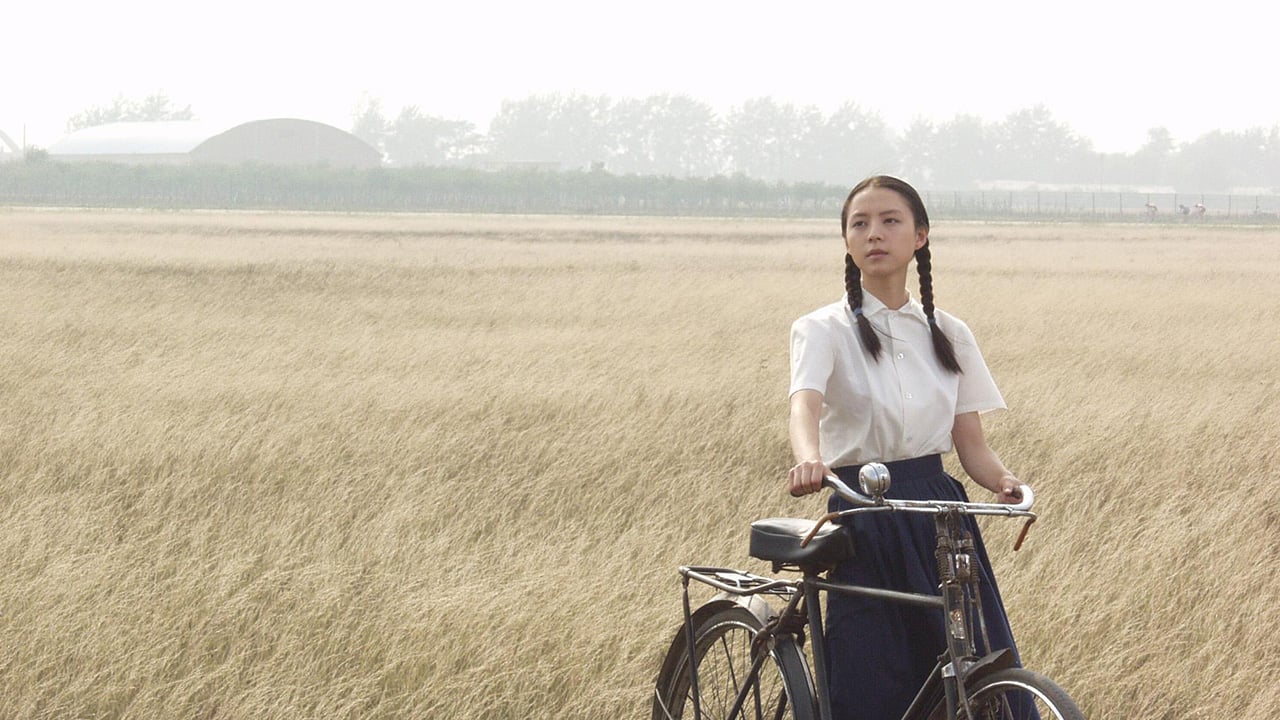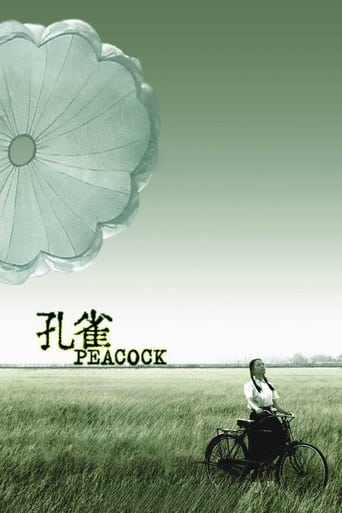

We finally watched this a few nights ago. I brought the DVD back from China a few months ago. This is an extremely good movie -- in my opinion one of the best movies from China that I have seen in a while -- and I am surprised and disappointed that it hasn't been released in the states yet. This is not a bloated and overwrought effort at an epic of the sort that has become so common in China.This is a touching study of the siblings in a single family, and their struggle to get by. This may seem like an odd analogy, but watching it made me think of Yasujiro Ozu's movies. Obviously the film is about China and not Japan, but there are some parallels in terms of the use of a single family as a lens for evoking a changing society. Someone with an interest in China could learn a lot about society there during the seventies and eighties.As one would expect given Gu Changwei's background as a cinematographer, the film is absolutely beautiful to look at.I hope this is released in the States - if it hasn't been already - so others have an opportunity to enjoy it.
... View MoreI just saw "Peacock" tonight as part of the New York Asian Film Festival. The review I read prior to watching this film touted it as one of the few stories set in post-Revolutionary China that isn't depressing. While this is true, "Peacock" is not sentimental either. Instead, it depicts the realities of small-town family life in a matter-of-fact manner that makes you feel for the characters even more.The family dynamics were so real and relatable. Although I am Chinese-American, and my upbringing took place in comfortable suburban America, I could definitely recognize elements like the passive aggressive "tough love" of the mother toward the daughter (although my own mom is not quite so extreme), and the painful awkwardness of huddling in silence with my brother while family members audibly fought in the other room. The love-hate rivalry and relationships that each member of the family felt for one another, co-mingled with the accepted duties of filial piety and self-sacrifice (nowhere is this realized more than in the two younger siblings' treatment and attitude toward their older brother), was nuanced and realistic.The performances were all amazing, particularly the actresses who played the mother and the daughter. The elder actress' portrayal of a hardworking woman who loved her entire family but expressed it differently toward different family members made me want to call up my mom right after the movie. And the actress who played the daughter made a role that could have come off a bit bratty into a three-dimensional character whom you could root for. She was perfectly vulnerable and tough at the same time. Truly a unique character.The only flaw I found in "Peacock" was that the third act felt rushed, and plot progression was suddenly very abrupt. The third act was ostensibly about the youngest child (the narrator), but I learned more about him when he was "silent as a shadow" in the first two acts.... SPOILERS BELOW... .. .. .. It was hard to relate to him after he suddenly blew back into town, complete with swagger and a worldly new family. It felt a bit out of character, but also -- I didn't realize that being pulled out of school (all because of one dirty drawing?) meant that he ran away from home, and also, how did he go from serving at a rest home (in character) to being a cocky smoker? How did he lose a finger? How did he become so shiftless and lazy? And when did he reconcile with his wife? (In the penultimate scene with the two of them, she says she wouldn't have married him if she had known he didn't want to work for a living, but then in the final peacock scene, they look like a happy family again.) .. .. .. Despite what I perceive as a rushed ending with holes in character and story development, the film as a whole is beautiful, both sensually and content-wise. It is a realistic and compassionate depiction of family life that I believe most viewers will find to be fairly universal.
... View MoreThe story is set in the 1970s in a small town in China. A middle aged couple has three children. The eldest son is obese and mentally challenged, therefore he is teased and outcasted by others. The second child is an outgoing and energetic daughter, who is not afraid of doing anything to pursue her dreams or to survive. The youngest child is a shy and quiet boy who is ashamed by his older brother and tries to break away from the misery in his family. Breaking into three sections focusing on each of these siblings, the film allows us to look into the lives of ordinary Chinese people the 70s.With poetic cinematography, this film reveals fascinating stories and characters to the audience. After watching this film, I doubt that anybody would forget the image of an old lady slowly passing the dinning table in the hall way where the family has supper together everyday. We witness how the three siblings dreamed, how they fought to make their dreams come true, and how they succeeded or failed, and how powerless and hopeless they were to accept their fate.This is a must see, not to be missed.
... View MoreAfter getting the silver bear award in the Berlin International Film Festival, the film "Peacock" drew quite a lot of people's attentions, including me. I didn't read any synopsis or articles before going to the cinema. The film started while my knowing nothing about it. "Peacock" is three stories about three people-the elder sister who keeps on seeking her dream, the elder brother who is not so smart but pretty kind, and the young brother who wants to get out of the cage of his family. Life is like this. Having a dream, then the dream is broken. Having another dream, than the dream is broken again. And we grow up during getting and losing out dreams. When looking back to the past, we can hardly believe that we ever had such a beautiful dream. That's what we call youth. It passed like flowing water, without any attachment. What is your dream? Make it come true before it is gone. Life is just as short as a peacock's spreading its tail. In fact, I wasn't deeply attracted by the film when watching it for the first time. However, I found it difficult to help thinking about it again and again the following days. I didn't really realize the bitters of life in the film without spending some time. It must be the reason why "Peacock" fascinates me and many of us a lot.
... View More